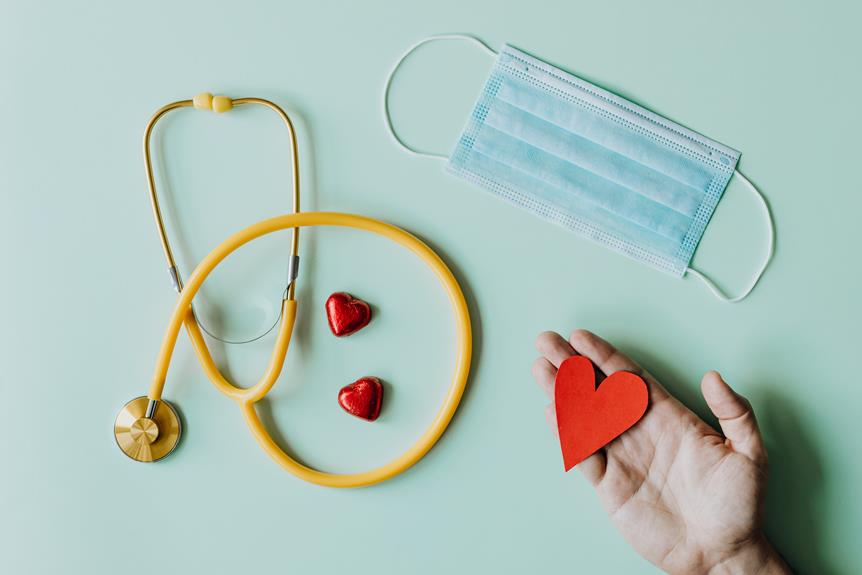Social media has become an integral part of our lives, allowing us to connect with friends and family, share our thoughts, and stay up-to-date on current events. While social media has many benefits, its impact on mental health is a topic of concern.
Research has found that excessive social media use can lead to feelings of anxiety, depression, and low self-esteem. The negative impact of social media on mental health is due in part to the constant comparisons we make with others online.
Social media platforms can create a false sense of reality by showcasing people’s highlight reels and edited moments, causing us to feel inadequate or inferior. Additionally, the pressure to maintain a certain image online can lead to increased stress and anxiety.
It’s essential to explore this issue further to understand the potential risks associated with social media use and how we can mitigate them for better mental health outcomes.
The Dark Side Of Social Media
Social media has become an integral part of our daily lives. We use it to connect with friends and family, keep up with current events, and share our thoughts and experiences. However, there is a dark side to social media that cannot be ignored.
One of the most significant issues is cyberbullying. Cyberbullying prevention is a necessary step that platforms must take to ensure users’ safety online. With the anonymity that social media provides, it’s easy for people to post hurtful comments or messages without fear of consequences. This can have devastating effects on the mental health of those who are targeted, leading to anxiety, depression, and even suicide.
Another problem with social media is the constant need for online validation. We often measure our worth based on how many likes or followers we have, which can lead to feelings of inadequacy or low self-esteem if we don’t receive enough attention. This pressure to perform can also cause us to compare ourselves constantly to others instead of focusing on our own lives and accomplishments.
Overall, while social media has its benefits, it’s essential to acknowledge its negative impact as well. Cyberbullying prevention should be a top priority for all platforms, and we should strive to find validation within ourselves rather than relying on external sources.
By being aware of these issues and taking steps to mitigate them, we can make social media a safer and more positive space for everyone.
Comparisons And Envy
Comparing yourself to others can be a dangerous game, as it can lead to negative thoughts and feelings.
Social media doesn’t help, as it provides a platform for people to share the best parts of their lives, making it easy to feel like you’re falling short.
This can lead to feelings of envy, which can have a negative impact on your mental health.
It’s important to remember that what people share online isn’t always an accurate representation of their lives.
Comparing Yourself To Others
Have you ever found yourself scrolling through social media, comparing your life to others’? It’s easy to fall into the trap of thinking that everyone else is living a perfect life, while yours falls short. However, it’s important to remember that social media often only shows a highlight reel of people’s lives, rather than the full picture.
Overcoming comparisons and envy can be difficult, but developing self-compassion is a great place to start.
One way to overcome comparisons is by focusing on your own journey and progress. Instead of comparing yourself to others, set goals for yourself and work towards achieving them at your own pace. Celebrate your accomplishments and don’t let the success of others diminish your own achievements. Remember that everyone has their own path in life, and it’s not a competition.
Developing self-compassion can also help combat feelings of envy and comparison. Treat yourself with kindness and understanding, just as you would a close friend or loved one. Practice positive self-talk and focus on the things that make you unique and special. By recognizing your worth and value, you can better appreciate the good things in your life without feeling like you have to measure up to anyone else’s standards.
Social Media Envy
It’s no secret that social media has a significant impact on our lives, particularly when it comes to comparisons and envy. Seeing the carefully curated highlight reels of others can leave us feeling inadequate or envious of their seemingly perfect lives. Unfortunately, this can have a negative impact on our self-esteem and relationships.
Constantly comparing ourselves to others on social media can lead to feelings of inadequacy or self-doubt. It’s easy to forget that what we see online is often only a small portion of someone’s life, and not an accurate representation of reality. This can cause us to question our own worth and value, leading to a decrease in self-esteem.
Social media envy can also have an influence on our relationships. If we’re constantly comparing ourselves to others, it’s likely that we’ll begin to feel envious of those closest to us as well. This can create tension in relationships and make it difficult for us to appreciate the good things in our lives.
Learning how to overcome jealousy and comparisons is crucial for maintaining healthy relationships both online and offline.
The Pressure To Maintain An Online Persona
The pressure to maintain an online persona is one of the most significant impacts of social media on mental health. With platforms like Instagram and Twitter, individuals are expected to present their best selves continuously. The performative nature of social media means that people feel like they always need to be ‘on’ and present a curated version of themselves. This pressure can lead to anxiety, depression, and other mental health issues.
Authenticity struggles are also prevalent in this context. People often feel like they have to conform to what is popular or trendy on social media, rather than being true to themselves. This struggle for authenticity can lead to a lack of self-confidence and self-esteem as individuals try to fit into a mold that doesn’t necessarily fit them.
Moreover, the pressure to maintain an online persona can lead people down a path of comparison and competition with others. Social media users may feel like they need to keep up with their peers’ lifestyles or achievements, which can cause feelings of inadequacy and low self-worth.
Here are 4 ways social media pressure affects our mental health:
– Fear of missing out (FOMO)
– Increased anxiety
– Negative body image
– Cyberbullying
In conclusion, maintaining an online persona comes with significant challenges that impact our mental health negatively. The performative nature of social media creates unrealistic expectations that can lead to anxiety, depression, and other mental health issues. With authenticity struggles further complicating the issue, individuals may struggle with the pressure to conform while staying true to themselves.
It’s vital for us all as users of these platforms to pay attention and take necessary steps towards using these mediums positively without compromising our well-being.
The Link Between Social Media Use And Mental Health Issues
As we discussed earlier, the pressure to maintain an online persona can be overwhelming. However, this pressure can lead to a more serious issue: social media addiction. Social media platforms are designed to keep users engaged for as long as possible, and this has led to a rise in addiction-like behaviors. People may find themselves spending hours scrolling through their feeds or constantly checking notifications, leading to neglect of other responsibilities and relationships.
Furthermore, social media use has been linked to mental health issues such as depression and anxiety. The constant comparison to others’ seemingly perfect lives can lead to feelings of inadequacy
and low self-esteem. Additionally, online harassment is prevalent on these platforms and can have serious consequences on mental health. Cyberbullying has become a major issue, particularly among young people, leading to feelings of isolation and even suicide in some cases.
It’s important for individuals to recognize the potential negative impact that social media can have on their mental health and take steps towards limiting use or seeking support if necessary.
It’s also crucial for social media companies to take responsibility for promoting healthy usage habits and addressing issues such as online harassment.
As we continue to navigate the complex relationship between social media and mental health, it’s essential that we prioritize our well-being over our online presence.
Tips For Mitigating The Negative Effects Of Social Media Use
To mitigate the negative effects of social media use, it is important to take a step back and engage in a digital detox. This means taking a break from screens and technology for a set period of time each day or week. It could be as simple as turning off your phone an hour before bed or setting aside a weekend to unplug completely.
By disconnecting from social media, you give your brain the opportunity to decompress and recharge. Mindful scrolling is another way to combat the negative impact of social media on mental health. Instead of mindlessly scrolling through your feed, take note of how certain posts make you feel.
If something triggers anxiety or negative emotions, consider unfollowing that account or muting certain keywords. Additionally, limit your time spent on social media each day by setting boundaries for yourself and sticking to them. Incorporating mindfulness practices such as meditation and yoga can also help counteract the harmful effects of social media on mental health.
These practices encourage being present in the moment and focusing on your breath, which can reduce stress and improve overall well-being. By incorporating these tips into your daily routine, you can mitigate the negative effects of social media use and promote better mental health.
Frequently Asked Questions
How Do I Know If Social Media Is Negatively Affecting My Mental Health?
If you’re wondering whether social media is negatively affecting your mental health, there are a few signs to look out for.
For starters, if you find yourself feeling anxious, depressed or stressed after scrolling through your feeds or checking notifications, it may be time to take a break.
Another indicator is if you’re constantly comparing yourself to others online and feeling like you don’t measure up.
Coping with social media stress can involve limiting your time on these platforms, unfollowing accounts that make you feel bad about yourself and spending more time engaging in activities that promote positive mental health.
By being mindful of how social media affects you, you can take steps to prioritize your well-being.
Can Social Media Addiction Be Treated Like Other Forms Of Addiction?
Social media addiction is a growing concern, and many people wonder if it can be treated like other forms of addiction.
Fortunately, therapy for social media addiction is available and can help those who are struggling with their excessive online habits.
Treatment options include cognitive-behavioral therapy, group therapy, and support groups.
With the right approach and professional guidance, individuals can regain control over their social media use and improve their overall well-being.
Is There A Correlation Between Social Media Use And Depression?
Exploring the link between social media and depression, analysts have been studying the effects of social media on anxiety levels.
Studies show that there is a correlation between frequent social media use and increased feelings of depression.
While social media users may feel more connected to others, they may also experience feelings of loneliness and isolation when comparing themselves to others online.
Additionally, the constant exposure to unrealistic expectations and negative news can cause heightened levels of anxiety, leading to depressive symptoms.
It’s important for individuals to monitor their social media use and prioritize self-care practices to maintain good mental health.
How Can I Improve My Self-Esteem And Confidence While Using Social Media?
Self-acceptance strategies and managing comparison mindset are key to improving self-esteem and confidence while using social media.
It’s easy to get caught up in the highlight reels of others’ lives, leading to feelings of inadequacy and low self-worth.
However, by focusing on your own journey and accomplishments, practicing positive self-talk, and limiting exposure to triggering content, you can cultivate a more positive relationship with social media.
Remember that everyone has their own unique path and experiences, and comparing yourself to others only hinders your own growth and happiness.
Are Certain Social Media Platforms More Harmful To Mental Health Than Others?
Certain social media platforms have been found to have negative effects on mental health. For example, Instagram has been linked to increased depression and anxiety due to the constant comparison and pressure to present a perfect image.
On the other hand, platforms like Twitter and YouTube have been found to have less detrimental effects on mental health. However, it’s important to note that moderation strategies can help reduce the negative impact of any social media platform.
This includes limiting screen time, taking breaks from social media, and being mindful of how certain content makes you feel while using these platforms.
Conclusion
In conclusion, social media has undoubtedly had a profound impact on our mental health.
As someone who struggles with anxiety and depression, I have noticed the negative effects that excessive social media use can have on my well-being.
It’s crucial to recognize when social media is negatively affecting our mental health and take steps to mitigate its impact.
Whether it’s limiting our screen time, seeking professional help for addiction or talking to loved ones about how we’re feeling, there are ways to combat the negative effects of social media on our mental health.
By being mindful of how we engage with these platforms and taking care of ourselves both online and offline, we can maintain a healthy relationship with social media while prioritizing our mental well-being.





